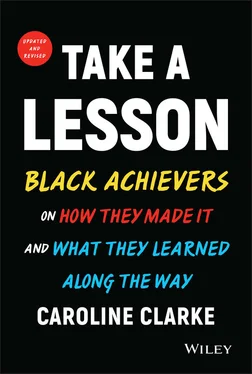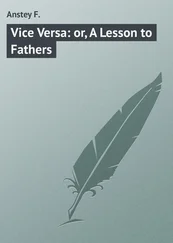Peoria, where I grew up, is sort of this microcosm of the culture of the country. Caterpillar [the nation's leading manufacturer of construction equipment] was headquartered there while I was growing up. It was also the birthplace of Richard Pryor.
I went to a small parochial school that was very good to me and invested in me in many ways. And yet, there weren't a lot of folks who looked like me in that environment—and not a lot of pastors' kids either, even though it was a parochial school. I have memories of my parents counseling folks, going to hospitals, and visiting members of their congregation to try to look in on their needs, and that imbued a sense of mission in how I see the world.
Duality is an overarching theme threaded throughout my journey. Being the only, the first, and the youngest, and eventually having that marry with achievement and all the expectations, ideas, and agendas associated with it, is something that I have become more reflective on over time, both as a person and a leader.
As a kid, I competed in spelling bees through both the Association of Christian Schools International (ACSI) National Spelling Bee and the Scripps Howard National Spelling Bee, which is the one that's on ESPN. Starting in third grade, I just joined on a lark. The winners got trophies and the losers got cookies. As you got older, the trophies got bigger.
I competed for five years and went to both of those national bees, three years in a row. I was making progress each time (in my third year, I won the [Scripps Howard] city bee, I won the regional, and I went to the nationals) but, as I progressed, I felt that I stood out more, and not always in a positive way.
There weren't that many spellers who were going to the national bee over and over again. There weren't any other spellers who were going to both the ACSI and the Scripps Howard. And Peoria hadn't been represented that frequently in one of these spelling bees, much less both. You layer on the complexity of my ethnicity, of being Black, of being a pastor's kid, and these things compounded and funneled into my definitely feeling different.
We couldn't afford coaches; we just had to do it on our own. I studied all year long for an outcome that took maybe 30 seconds, and it was very solitary. But I got comfortable with competing and I got very comfortable with alone time. I still am.
Both of my parents attended the bees. If I won, there was a moment of celebration; then my dad would always remind me, “Okay, now you need to start studying for next year.” My dad was very much a person who if I brought home a 95, he would ask me where the other five points were. If I brought home a 100, he'd ask, “Was there extra credit?”
I competed in 40 spelling bees, winning 32 of them. The ability to win and to lose—and the difference in how that feels and how you need to show up with graciousness in both of those moments—really stuck with me. I definitely learned that winning is better. But I saw the fragility of it all and just how much luck and fate play into things. You start to [also] recognize that you're always onstage in a way.
It definitely taught me how to cope with pressure. After you've studied the dictionary and spelling lists for five years straight, there's not a lot that fazes you. I used to articulate it as, I've lived a weird life, but it shaped my perspective. And over time, you learn that everybody has lived a weird life.
In a Christian school, there's a lot of emphasis on respecting your father and mother. I did that, and [throughout most of high school], I thought I would become a pastor as well. But, without going into a whole lot of detail, my dad did not treat my mom with the respect that she deserved, and he didn't always treat me with the respect that I probably should have had as well. It was a multifront problem and I had learned how to triage around it, but, at a certain point—I think it was when I turned 16—I realized that I would not be able to continue down this path. So, on February 11, 2002, the day after I turned 18, I moved out.
The family of a friend of mine at school learned what I was going through and opened their home to me. Every year on that anniversary, I call the Wiltons and thank them. What a difference they made in my life.
I didn't realize how poor we were until I moved in with another family. I was used to going to buffets and my dad saying, “Hey, pile up your plate because this is your only meal today.” When I was growing up, it didn't happen often but, as a treat, sometimes I was allowed to get a second bowl of cereal. I remember asking for a second bowl of cereal at the Wiltons', and they looked at me like I was from another planet: their attitude was “have as much cereal as you want.” I didn't even quite know how to process that.
Why does that matter in my journey? It clarified for me that I was on my own. My mom and dad divorced shortly thereafter. The relationships within our family were irretrievably broken. I understood that everything I would ever have or not have would be up to me, and I'd have to go figure out how to make it work. And so that created a hustle and a strength, because there was no safety net.
I see my life in paradoxes in many ways. Where it ties together is that I feel a sense of gratitude and good fortune for amazing folks who saw me and invested in me over the course of my journey. And because of all the different pivot points in my life, I'm acutely aware of how differently things could have turned out. I'm also acutely aware that there are other people in similar situations who, for whatever reason, didn't have those folks who came along and invested in them, and the ultimate question then is, “Well, Sam, what are you going to do about it?” That's what drives me.
I've been very blessed to have folks who've been mentors and who have helped create pathways for me, and I don't really ascribe that to me, I ascribe that to great people who I was fortunate enough to intersect with, who were kind. If certain breaks hadn't gone my way, I wouldn't have even been in a position to go to Taylor [University] or Harvard [Business School]. All these breaks make me feel a sense of responsibility.
I was a deferred admit [to HBS], entering at 23 when most of the folks were entering at 27. In a class of 900, in your first year, you all take the same courses but are divided into 10 sections of 90, and in my section, I ended up being the youngest. I personally didn't observe many Horatio Alger stories in my business school. That was interesting to me.
I remember I was at an investment banking recruiting dinner, sitting with a managing director and a classmate. They started talking about this elite New York City day care that they had gone to or were going to send their kids to, and I felt two simultaneous emotions. One, gratitude as I thought, How the heck am I even here, when during my dad's entire life, he never drew a salary of more than $14,000? I also thought, These day cares probably cost more than my dad ever made .
In parallel, I also felt imposter syndrome. Like, How do I belong here? I already look different. I'm already younger. I'm already from the Midwest. I'm already on my own. I already have these other things that I don't really talk to people about .
I didn't talk about my identity. I talked about being Black, but I didn't talk about all the nuances that were associated with my journey. I was a private person for many reasons, but one of them was that I didn't really like to unpack that.
The truth is, I've felt like an imposter in every role I've ever been in, and it incentivizes me to work harder, but it's given me empathy for other folks who are underrepresented or the only or one of the few, in similar contexts. I learned that between the mix of my private‐person‐otherness‐lone‐wolf‐comfort‐what‐have‐you, I face questions at times, like, What makes you tick? And the ironic thing is that the more that I've been blessed to achieve, it only becomes more othering in some regards.
Читать дальше











